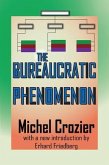Are political understandings of bureaucracy incompatible with Weberian features of administrative neutrality? In examining the question of whether interest groups and elected officials are able to influence how government agencies implement the law, this book identifies the political origins of bureaucratic neutrality. In bridging the traditional gap between questions of internal management (public administration) and external politics (political science), Huber argues that 'strategic neutrality' allows bureaucratic leaders to both manage their subordinates and sustain political support. By analyzing the OSH Act of 1970, Huber demonstrates the political origins and benefits of administrative neutrality, and contrasts it with apolitical and unconstrained administrative implementation. Historical analysis, interviews with field-level bureaucrats and their supervisors, and quantitative analysis provide a rich understanding of the twin difficulties agency leaders face as political actors and personnel managers.
Hinweis: Dieser Artikel kann nur an eine deutsche Lieferadresse ausgeliefert werden.
Hinweis: Dieser Artikel kann nur an eine deutsche Lieferadresse ausgeliefert werden.
"Why are government bureaucrats sometimes susceptible to political pressures, while other times they act independently? The answer lies in the concept of strategic neutrality, which explains how bureaucrats shape, as well as respond to, their political environment. Huber's analysis is insightful, careful, and convincing." Charles Shipan, University of Michigan








